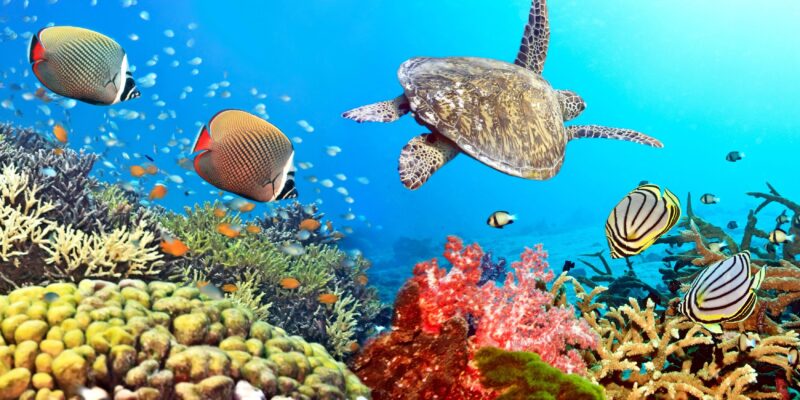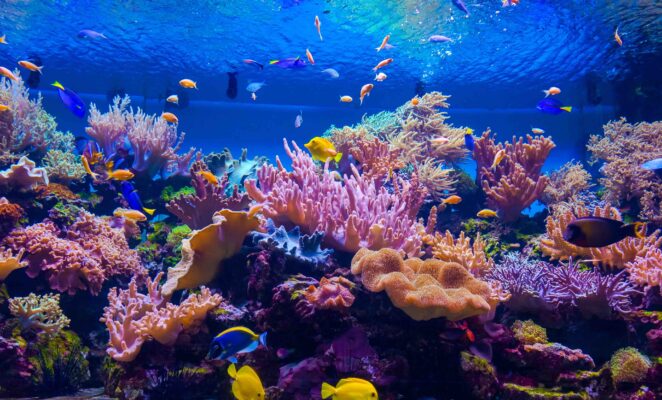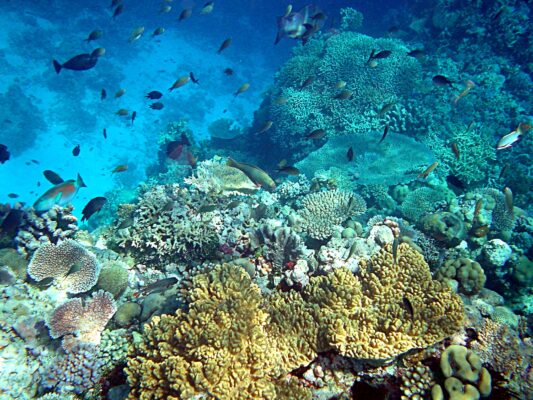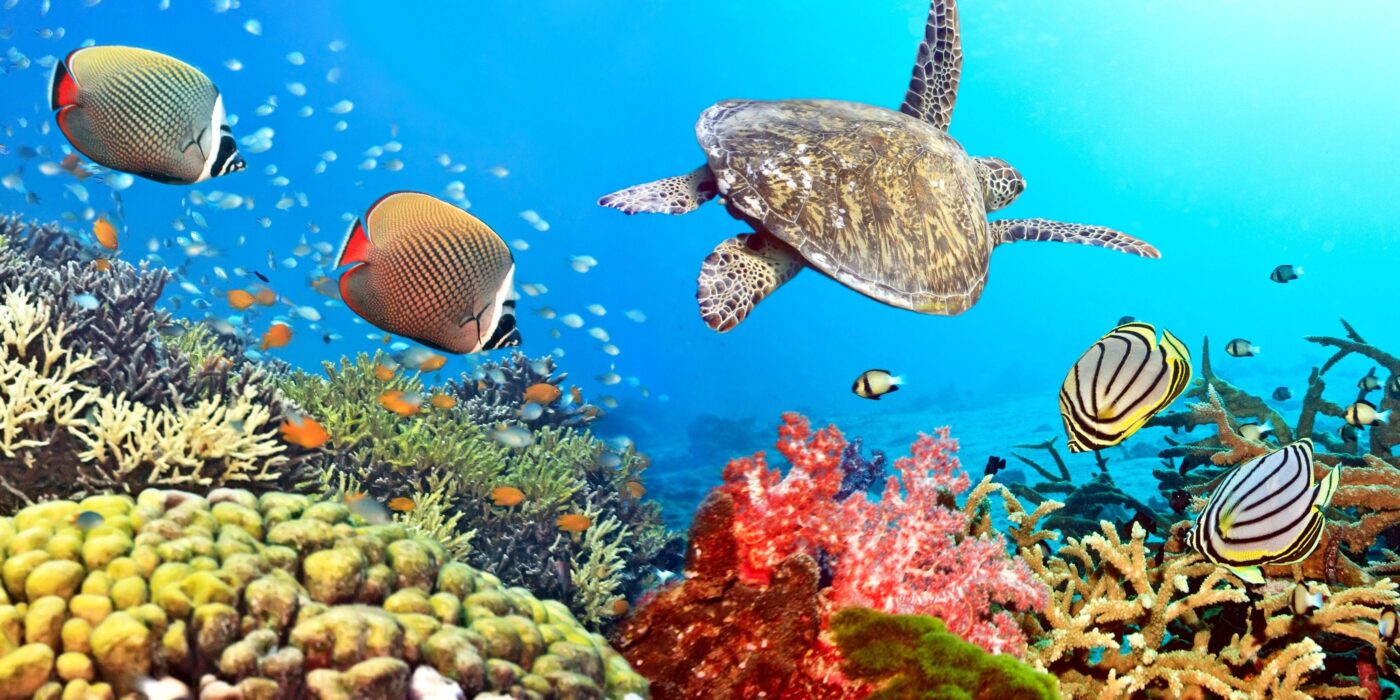The importance of coral reefs extends far beyond their breathtaking beauty and vibrant ecosystems. These underwater gardens serve as crucial components of marine life, providing habitat for a multitude of species, acting as natural barriers against coastal erosion, and contributing significantly to global biodiversity. Understanding the multifaceted roles that coral reefs play in our oceans is essential for recognizing the urgent need for their preservation and protection. As we delve into the world of coral reefs, we uncover their significance not just to marine life but to human societies and economies as well.

The Ecological Significance of Coral Reefs
Coral reefs are often referred to as the “rainforests of the sea” due to their astonishing diversity and productivity. They occupy less than one percent of the ocean floor yet harbor an estimated 25% of all marine species. This incredible biodiversity fosters complex food webs and ecological interactions, which are critical for maintaining the health of our oceans.
Biodiversity Hotspots
Coral reefs are home to a staggering variety of organisms including fish, mollusks, crustaceans, and other marine creatures. This diverse assembly of life leads to intricate relationships between species that form the backbone of aquatic ecosystems.
The myriad of niches within coral reefs allows various species to thrive. For instance, certain fish species rely on coral for shelter and breeding grounds, while others depend on it for food. In turn, these fish contribute to the overall health of the reef by grazing on algae that could otherwise overwhelm coral growth. Such interdependencies underline the importance of coral reefs in sustaining marine biodiversity, making them crucial to the survival of countless marine organisms.
Beyond just fish, coral reefs also support a host of invertebrates, sponges, and even microorganisms that participate in nutrient cycling and energy transfer within the ecosystem. The loss of any single species can lead to a cascade effect, threatening the delicate balance of the entire reef community.
Habitat for Marine Species
Many commercially important fish species, such as grouper and snapper, spend their juvenile stages in the safety of coral reefs. This habitat serves as a nursery, providing refuge from predators until the young fish are mature enough to venture into open waters.
Moreover, the structural complexity of coral reefs creates a plethora of habitats—ranging from crevices and caves to expansive flat areas—each supporting different biological communities. This variability enhances not only species diversity but also plays a vital role in the overall productivity of marine ecosystems.
As climate change and human activity threaten these habitats, it becomes increasingly crucial to recognize the importance of coral reefs in supporting marine life. Protecting these ecosystems means safeguarding the livelihoods of millions of people who rely on fishing and tourism related to healthy coral ecosystems.
Reef Ecosystem Services
Coral reefs provide invaluable ecosystem services that benefit both marine life and human populations. One of their primary functions is serving as a barrier against storms and high waves. This natural protection helps mitigate coastal erosion and safeguard coastal communities from the devastating impacts of hurricanes and typhoons.
Additionally, coral reefs contribute to the economy through fisheries and tourism. Many coastal communities depend on fishing activities centered around healthy reef systems. Tourist activities like snorkeling and diving draw millions annually to witness the spectacular underwater landscapes. The financial influx generated by reef-related tourism can drive local economies and provide funding for conservation efforts.
The ecological services delivered by coral reefs cannot be overstated. Their ability to filter water, cycle nutrients, and maintain stable marine conditions supports broader ocean health. Understanding and valuing these services underlines the importance of coral reefs in our collective efforts to sustain and protect marine environments.
Threats Facing Coral Reefs
Despite their critical role in marine ecosystems, coral reefs face numerous threats that jeopardize their existence. Climate change, pollution, overfishing, and destructive tourism practices are among the leading factors contributing to reef degradation.

Climate Change
One of the most pressing threats to coral reefs is climate change, particularly rising sea temperatures. Coral bleaching occurs when corals become stressed due to temperature spikes, causing them to expel the colorful algae (zooxanthellae) with which they have a symbiotic relationship. This process not only diminishes the beauty of the reefs but also severely impacts their health and resilience.
When corals bleach, they lose their primary source of nutrition, which can lead to widespread mortality if stressful conditions persist. Alongside temperature changes, ocean acidification poses another danger as increased levels of carbon dioxide result in lower pH levels, hampering corals’ ability to calcify and grow.
The combined effects of rising temperatures and acidification create a challenging environment for coral reefs, leading scientists to predict that many could collapse within decades unless immediate action is taken to reduce greenhouse gas emissions.
Pollution
Pollution is another significant threat to coral reefs. Runoff containing fertilizers, sewage, and plastics enters marine ecosystems, disrupting the delicate balance required for coral health. Excess nutrients from agricultural runoff can fuel algal blooms, which compete with corals for sunlight and space.
Plastic waste, meanwhile, can physically damage corals and introduce harmful toxins into the marine environment. Chemicals found in sunscreens have also been linked to coral bleaching, creating an additional challenge for reef conservation.
Addressing pollution requires comprehensive management strategies, including improved waste treatment, sustainable agricultural practices, and public education about the impacts of pollutants on coral ecosystems.
Overfishing and Destructive Practices
Unsustainable fishing practices further exacerbate the decline of coral reefs. Overfishing removes key species that help maintain the ecological balance within reef ecosystems. For example, the removal of herbivorous fish can lead to unchecked algal growth, smothering corals and impeding their recovery.
Destructive fishing methods, such as blast fishing and cyanide fishing, cause direct physical harm to coral structures. These practices not only decimate fish populations but also obliterate the intricate habitats that corals provide.
Promoting sustainable fishing practices and implementing marine protected areas are essential steps to combat the threats posed by overfishing and ensure the long-term viability of coral reef ecosystems.
Conservation Strategies for Coral Reefs
Given the tremendous value that coral reefs provide, various conservation strategies have emerged to address the threats they face. Collaborative efforts among governments, NGOs, scientists, and local communities are essential for effective reef protection and restoration.
Marine Protected Areas
One of the most effective tools for coral reef conservation is the establishment of marine protected areas (MPAs). These designated zones can restrict damaging activities like fishing, mining, and coastal development, allowing ecosystems time to recover and flourish.
MPAs not only safeguard existing coral populations but also enhance biodiversity and increase fish populations within their boundaries. They serve as critical refuges for vulnerable species and can aid in the replenishment of adjacent fishing grounds, benefiting local communities reliant on marine resources.
The success of MPAs hinges on stakeholder engagement and effective management. Communities must be involved in the planning and monitoring processes to ensure that conservation measures align with their needs and aspirations.
Restoration Efforts
In addition to protecting existing reefs, active restoration efforts are being implemented in many regions worldwide. Coral gardening initiatives involve cultivating coral fragments in nurseries and transplanting them onto degraded reefs to facilitate recovery.
Innovative techniques such as assisted evolution and selective breeding are being explored to enhance coral resilience against stressors like heat and disease. These approaches hold promise for bolstering coral populations and fostering recovery in damaged areas.
Partnerships between scientists, conservation organizations, and local communities can amplify the effectiveness of restoration efforts. By sharing knowledge and resources, stakeholders can work together to nurture coral ecosystems back to health.
Community Engagement and Education
Raising awareness about the importance of coral reefs is fundamental to successful conservation. Engaging local communities through education and outreach initiatives fosters a sense of stewardship and responsibility toward marine environments.
Community-based programs can empower individuals to take action, whether through sustainable fishing practices, beach cleanups, or participating in reef monitoring efforts. By building connections to coral ecosystems, people will be more likely to advocate for their protection.
Education fosters a deeper understanding of the challenges coral reefs face and highlights the essential role that everyone can play in their conservation. This collective effort is paramount to ensuring that future generations inherit vibrant and resilient coral reef ecosystems.

Conclusion
Understanding the importance of coral reefs is essential not only for appreciating their beauty but also for grasping their integral role in marine ecosystems and human livelihoods. The rich biodiversity supported by coral reefs, their capacity to provide essential services, and their economic contributions make them irreplaceable.
However, the myriad threats facing these ecosystems necessitates urgent action. From combating climate change to minimizing pollution and promoting sustainable practices, society must prioritize the conservation of coral reefs.
Through collaborative efforts and innovative strategies, there is hope for the future of coral reefs. By valuing their significance and committing to their protection, we can preserve these vital ecosystems for generations to come. Together, we can ensure that coral reefs continue to thrive, supporting life in our oceans and enriching our planet’s biodiversity.

